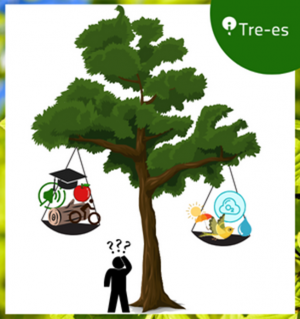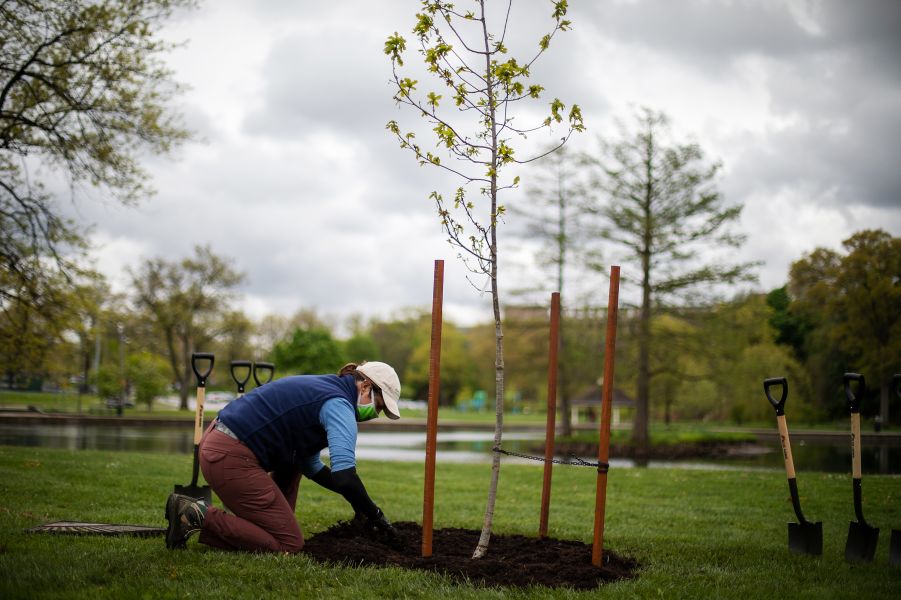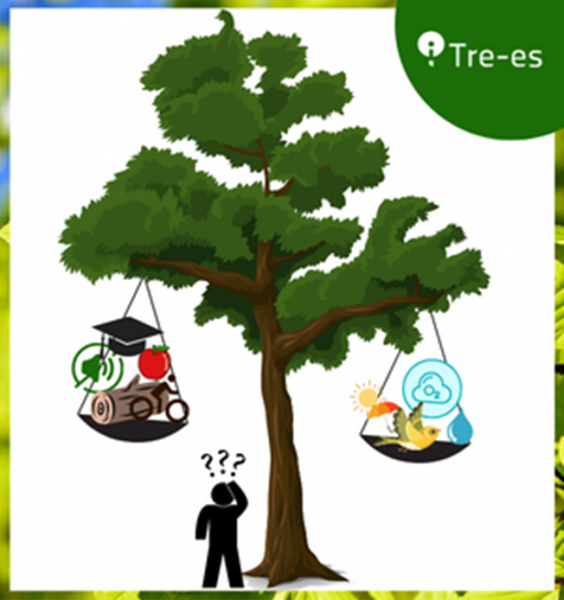Patrycja Przewoźna, Krzysztof Mączka, Marcin Mielewczyk, Adam Inglot, Piotr Matczak: Ranking ecosystem services delivered by trees in urban and rural areas Ambio 2022, 51:2043–2057 (https://doi.org/10.1007/s13280-022-01722-2)
The need to protect trees and increase their numbers because of the multiple ecosystem benefits they provide is being raised more and more often. Those benefits include sun protection, impact on retention, air purification, supporting mitigation of climate change by storing CO2 and creating recreational spaces that benefit our health and well-being. However, when it comes to the decisions made in this regard by both public officials and individuals, the topic turns out to be much more complicated. Although every tree is precious, its felling is sometimes unavoidable, especially when diseased trees threaten people's health and lives. There are often controversial removals. Decisions about new plantings are also not always entirely acceptable (whether by environmentalists or public perception). So how conduct trees manage to do it well and make the most of their potential?
This question was the subject of a study described by Dr. Patrycja Przewoźna and a team of co-authors in the renowned journal Ambio (DOI: 10.1007/s13280-022-01722-2). It was a study of two cases - the urban municipality of Racibórz (Silesian province) and the rural part of the rural-urban municipality of Nysa (Opole province). It concerns comparing the relative importance of the 17 benefits trees provide in the two research areas, based on expert knowledge (representatives of the local administration, foresters, environmental NGOs, and scientists).
The research resulted in two rankings of the ecosystem benefits provided by trees in each area, which developed indications for more effective management in urban and rural areas. It was also possible to identify eight key benefits that should be analyzed first when greenery management decisions are made, regardless of the type of municipality involved. The publication presents a description of a new research approach to identifying the essential ecosystem benefits delivered in the indicated community, taking into account the local context,
This paper is the result of research carried out under an NCN grant (No. 2017/25/B/HS6/00954) by an interdisciplinary team of Prof. UAM dr hab. Piotr Matczak, including specialists from various departments of the Adam Mickiewicz University, as well as the Hugo Kołłątaj Agricultural University in Kraków and the Gdańsk University of Technology. The project covered multiple aspects of tree management in urban and rural areas, focusing particularly on private land. More details on this research can be found on the project website: itre-es.com.




